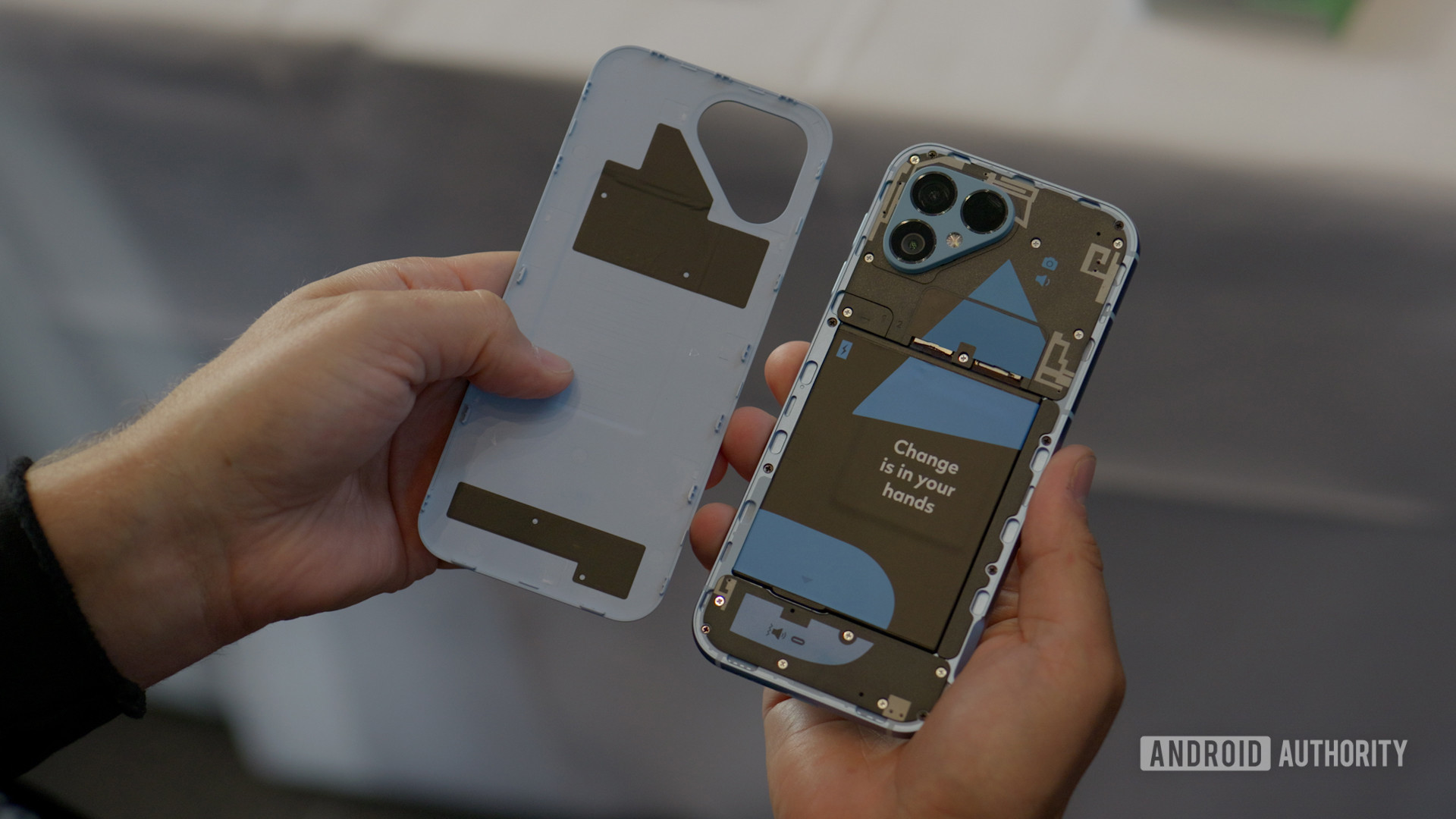
Damien Wilde / Android Authority
TL;DR
- Fairphone has responded to OnePlus’s comments on why the latter didn’t match Google and Samsung’s seven-year promise for updates.
- OnePlus said seven years of updates don’t matter if the user experience was bad, adding that the battery might not last.
- Fairphone responded by saying that OnePlus and others should make their batteries replaceable and offer more repairable designs.
“Some manufacturers are now saying that the filling in their sandwich — their phone’s software — will still be good to eat in seven years’ time,” OnePlus president Kinder Liu said in a recent Tom’s Guide interview.
“But what they’re not telling you is that the bread in the sandwich, the user experience, might be moldy after four years. Suddenly, a seven-year software update policy doesn’t matter because the rest of your experience with the phone is terrible.”
Liu also suggested that while rivals said their software update policy will last for seven years, “their phone’s battery may not.”
Fairphone hits back at OnePlus
Fairphone co-founder Miquel Ballester argued in an emailed press release that Liu had a point “albeit accidentally,” regarding hardware.
As the ‘bakers’ of Fairphone 2, the longest-lasting Android device to date, and the still oven-fresh Fairphone 5, offering eight years of guaranteed software support and aiming for ten — we wholeheartedly agree that non-repairable, glued-shut devices aren’t an excuse for mediocre software support commitments.
The Fairphone executive asserted that guaranteed software support was only part of the equation.
“It is high time the industry as a whole embraced a more repairable design for their devices,” Ballester urged, arguing that “if you can’t open it, you don’t own it.”
The Fairphone co-founder also had a final message for OnePlus and others:
To Mr Liu, and anyone else worried about their phone’s battery being outlasted by its software, the solution should be obvious: Make it replaceable.
We’re glad to see Fairphone taking OnePlus to task regarding Liu’s reasoning. After all, we could somewhat understand if a smartphone brand simply said it was too expensive and resource-intensive to offer seven years of updates. However, claiming that hardware and a decomposing user experience are hurdles in the way of long-term updates suggests that maybe OnePlus should address these challenges.
Liu’s excuse isn’t completely without merit, though. There were numerous cases over the years of older phones being bogged down by new updates or receiving loads of bugs. But this isn’t a common occurrence anymore. In fact, user reports suggest that the 2015-era FairPhone 2 still runs fine, albeit with some niggles (e.g. fingerprint scanner, GPS).
Do you buy OnePlus’s reasons for not offering seven years of updates?
26 votes
It also looks like some chipmakers haven’t stepped up their commitment to Android updates, either. More specifically, MediaTek told Android Authority last year that it was still currently offering four years of updates.
Fairphone isn’t the first to note that long-term updates now require hardware changes, either. We recently argued in an opinion piece that phones like the Galaxy S25 need removable batteries as these batteries are likely to die long before the phones stop getting updates.








